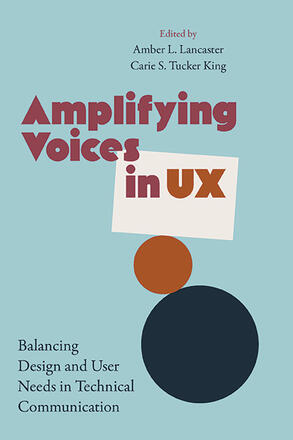
Amplifying Voices in UX
Balancing Design and User Needs in Technical Communication
Alternative formats available from:
Designers can create stronger products by considering multiple users with varied perspectives and thus create balance, termed equilibriUX, in their designs.
Description
The field of technical and professional communication is young, and research related to it—and specifically usability—is constantly growing. Usability and user-experience researchers are broadening research into studies involving social issues, accessibility, reconciliation, and user advocacy. Amplifying Voices in UX explores the theme of balance in design and UX in three main areas: curriculum design that includes empathy, service learning, and design justice; design and balance for effective medical and health communication; and design to create balance in labor, social, civic, and political movements.
Amber Lancaster is Associate Professor of Communication at the Oregon Institute of Technology. She is Director of Professional Communication and Associate Editor for Communication Design Quarterly. Carie S. T. King is Clinical Professor, Director of Rhetoric at the University of Texas at Dallas. She is the author of The Rhetoric of Breast Cancer: Patient-to-Patient Discourse in an Online Community.
Reviews
"Pushes technical and professional communication scholars to examine the more nuanced and marginalized issues that inherently arise in our work and our users’ everyday experiences … This collection, and individual chapters within it, would be useful for user experience courses, information design courses, ethics and technical communication or marketing, and intercultural communication." — Kate Crane, Eastern Washington University
"Takes a hands-on approach to UX approaches and demonstrates that UX can be used at various levels of practice: methodological, pedagogical, institutional, etc. The chapters themselves really shine because they are all focused on a specific set of practices and how they can be applied. They are also very diverse, however, which academic practitioners of UX need." — Guiseppe Getto, Mercer University